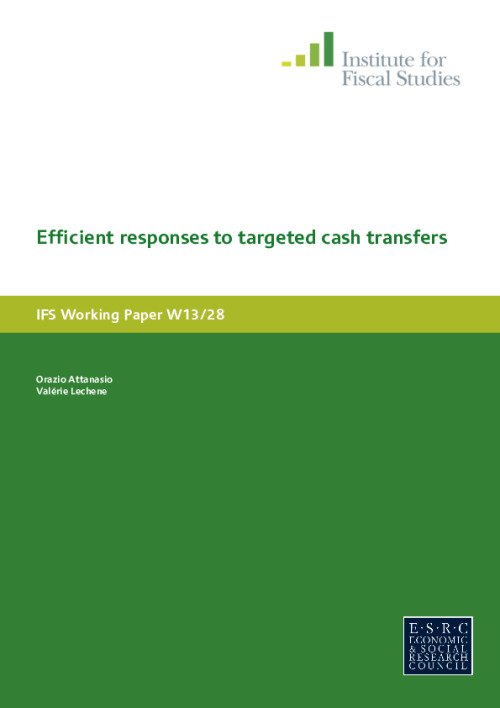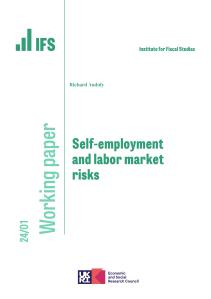Downloads

wp201328.pdf
PDF | 501.8 KB
In this paper, we estimate a collective model of household consumption and test the restrictions of collective rationality using z-conditional demands in the context of a large Conditional Cash Transfer programme in rural Mexico. We show that the model is able to explain the impacts the programme has on the structure of food consumption. We use two plausible and novel distribution factors, that is variables that describe the mechanism by which decisions are reached within the household: the random allocation of a cash transfer to women, and the relative size and wealth of the husband and wife's family networks. We find that the structure we propose does better at predicting the effect of exogenous increases in household income than an alternative, unitary, structure. We cannot reject efficiency of household decisions.
Authors

CPP Co-Director
Orazio is an International Research Fellow at the IFS, a Professor at Yale and a Research Associate at the National Bureau of Economic Research.

Research Fellow University College London
Valerie, a Research Fellow of the IFS, is a Reader at the University College London, whose research is focused on modelling intra-household behaviour.
Working Paper details
- DOI
- 10.1920/wp.ifs.2013.1328
- Publisher
- Insitute for Fiscal Studies
Suggested citation
Attanasio, O and Lechene, V. (2013). Efficient responses to targeted cash transfers. London: Insitute for Fiscal Studies. Available at: https://ifs.org.uk/publications/efficient-responses-targeted-cash-transfers (accessed: 5 May 2024).
More from IFS
Understand this issue

Sure Start achieved its aims, then we threw it away
15 April 2024

Retirement is not always a choice that workers can afford to make
6 November 2023

When and why should we care about inequality?
9 August 2023
Policy analysis

Distributional analysis of Ghana’s tax system
18 December 2023

Living standards since the last election
21 March 2024

Housing costs take up three-and-a-half times as much of the budgets of the poor as of the rich, with significant implications for their standard of living
17 November 2023
Academic research

Police infrastructure, police performance, and crime: Evidence from austerity cuts
24 April 2024

Saving by buying ahead: stockpiling in response to lump-sum payments
2 February 2024

Self-employment and labor market risks
9 January 2024